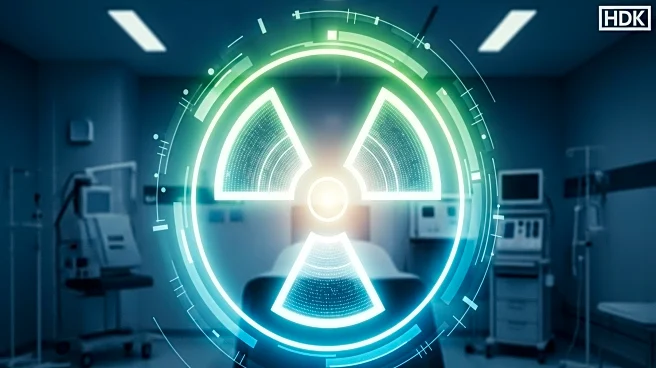What is the story about?
What's Happening?
Former President Joe Biden is undergoing a new phase of treatment for prostate cancer, which was diagnosed in May. The treatment includes radiation therapy and hormone medication, expected to last five weeks. Biden, who is 82, had previously undergone Mohs surgery for skin cancer, with successful removal of cancerous tissue. The prostate cancer had metastasized to his bones, prompting a comprehensive treatment plan to manage the illness effectively. Biden's office has emphasized the importance of personalized treatment options, including hormone therapy and chemotherapy, to address the aggressive nature of his cancer.
Why It's Important?
Biden's health is a matter of public interest due to his status as a former president and his ongoing influence in political circles. The aggressive prostate cancer diagnosis and subsequent treatment highlight the challenges faced by older adults in managing complex health conditions. The advancements in cancer treatment, particularly for high-risk prostate cancer, offer hope for improved outcomes and quality of life. Biden's situation underscores the need for awareness and education about cancer screening and treatment options, especially for older populations who may not be routinely screened.
What's Next?
The radiation therapy marks a critical phase in Biden's cancer treatment, with the potential to impact his public engagements and political activities. The success of the treatment will be closely monitored, and adjustments may be made based on his response. Biden's health will continue to be a focal point for media coverage and public interest, influencing discussions on healthcare policy and cancer treatment accessibility.
Beyond the Headlines
Biden's experience with cancer treatment highlights broader issues related to healthcare access and the importance of early detection. It raises questions about the adequacy of current screening guidelines for prostate cancer in older men and the need for personalized treatment approaches. The emotional and psychological impact of cancer diagnoses on patients and their families is also a significant consideration, emphasizing the need for comprehensive support systems.

















